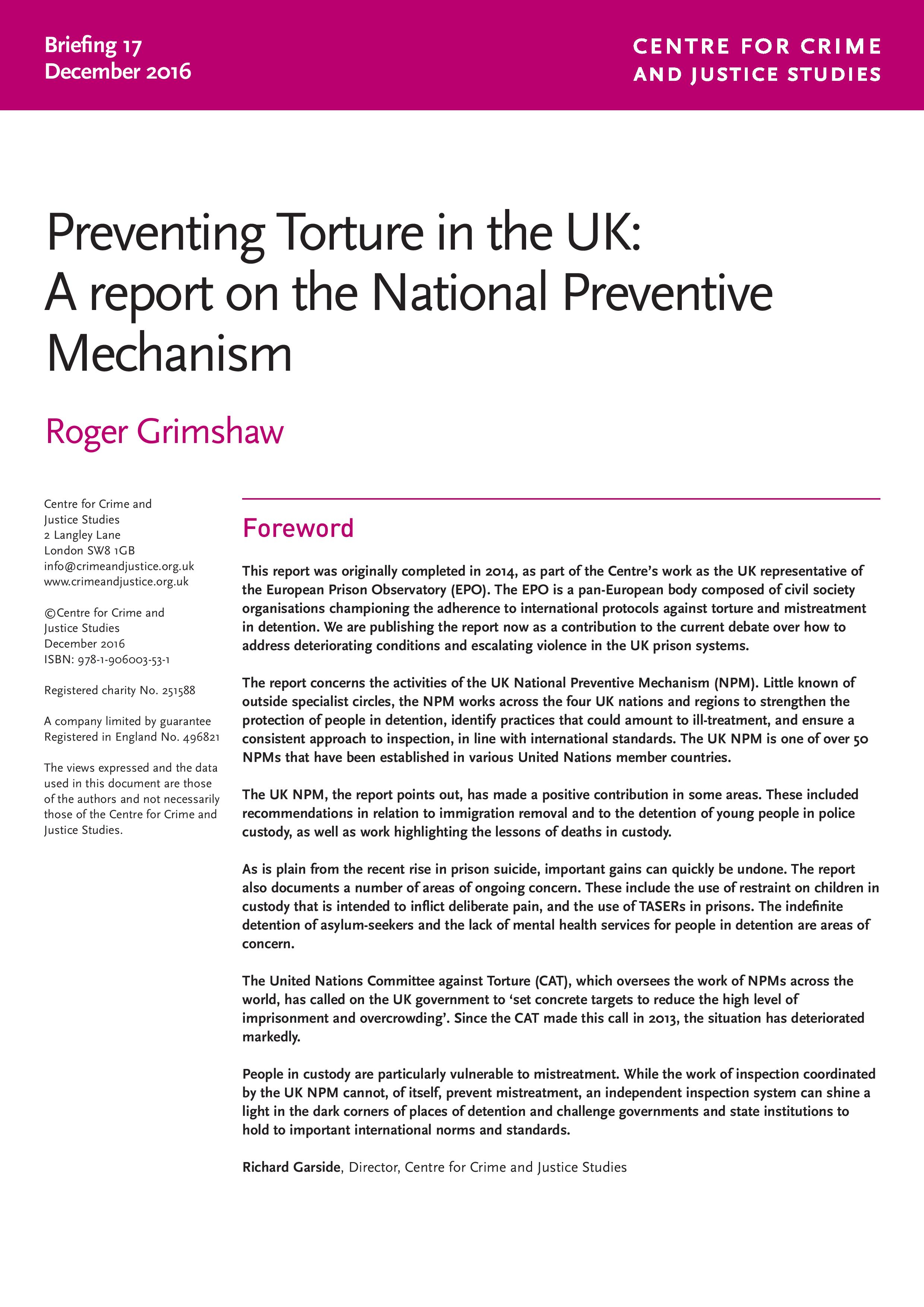Under the Optional Protocol of the UN Convention against Torture, National Preventive Mechanisms (NPMs) are set up to inspect and report on conditions in all places of detention.
The contents of this briefing were prepared in 2014 as parts of work the Centre was undertaking with several other European partners to assess the work of NPMs across Europe.
It should be read as an exercise in assessing the UK NPM’s work, as well as a commentary on a series of important concerns that have not diminished since that time. As the UK NPM's latest annual report is expected in early 2017, this is a good time to look closely at the NPM, which represents a pivot of the UK’s commitment to torture prevention under international human rights law.
It proceeds by establishing key points of reference for analysis of the NPM’s performance. Given the challenges of measuring trends in mistreatment, what evidence can be brought forward to comment on the workings and impact of the NPM? The reports of the many constituent bodies, dialogues with the UN Committee Against Torture, and expert studies, all make a contribution.
As well as highlighting problems brought to light by inspections, the briefing identifies significant question marks about the resourcing and constitution of the NPM. It shows how the UN Committee Against Torture has criticised the UK government for its responses to a number of issues.
At The Centre for Crime and Justice Studies we regard torture prevention as a cardinal objective of policy, and we present this report in order to develop further dialogue with agencies, partners and organisations representing victims, about ways of strengthening institutions and civil society participation in the field.
